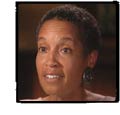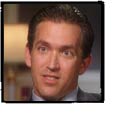 |




Until recently she served on the Superior Court of Santa Clara County, where she
heard both juvenile and adult cases. A state court trial judge since 1982, she
presided over Manny's fitness case.

Do you think any kid ever belongs in adult court?
Yes. . . . I have come across some young people who are so sophisticated and
who have committed such heinous crimes that the adult system is the place for
them to be. I haven't come across a lot, but there have been some. . . . It
can happen, and it does happen. . . .



The supervising deputy district attorney for the Juvenile Division of the Santa
Clara County's District Attorney's office, he's practiced exclusively in
juvenile court for the past six years. He was the prosecutor for Manny's
fitness hearing.

If we could take every kid and surround the kid with full-time staffs of
psychologists and child advocates and drug and alcohol counselors, then perhaps
no kid should be in adult court. But the fact is, there are only a limited
number of resources in the juvenile justice system, and they can only perform a
limited number of functions. To optimize those services for the kids that can
benefit the greatest amount from them, you have to make the hard call,
sometimes, as to whether or not the high-end offenders--and again, we are only
talking about the one or two percent of kids who ever come into the
system--whether those kids really are the just recipients of the resources that
the juvenile justice system has available to it. . . .



Until recently he was the presiding judge of the Juvenile Court of Santa Clara
County, a division of the California Superior Court and presided over Shawn's
case. He heard between 300 and 350 cases a month.

Are there kids that don't belong in juvenile court?
Oh, sure. Yes.. I've had sociopaths in court here. I've had only a few of
them, and I've been doing this for a long time. I can only really count maybe
a half a dozen, and only two in particular that I would be very frightened to
see on the street. But I see them from time to time.
Some people believe that no kid belongs in adult court. For one reason,
they can't be tried by a jury of their peers, because people of their age are
not allowed to serve. And some people would argue that, just by definition,
they cannot receive a fair hearing in adult court because of that. What do you
think?
They may be right.
Knowing what you know about the lack of services if a child is convicted in
adult court, knowing that there aren't going to be the kinds of counseling and
therapeutic and educational services available, do you feel, in essence, that
you're writing somebody off when you send them off?
Oh, absolutely. Yes. It's not a good feeling. It hurts.
When you have a kid who has committed a serious offense, someone who's
caused harm--most likely a crime of violence--what makes you keep them in the
juvenile system?
I'll keep them if I think I can make a difference. And the difference may not
manifest itself for many, many years. But if I think there is a good
likelihood that we can get this kid off the path he's on and onto a better
path, then it's worth the time and the effort. Even if it's a long shot, I'm
willing to take it.



Former supervisor of the juvenile division of the Santa Clara County Public
Defender's Office, she represented Shawn at his disposition.

Does any kid belong in the adult criminal system?
That's a hard question, and the reason it's a hard question is because
systemically, my belief is we could do it all better. . . . I don't think a
lot of adults belong in adult detention, quite frankly. I think we could do a
better job with that. If you look at recidivism rates throughout the country,
this punitive system is not working. It doesn't work. From one standpoint, if
you lock people up for life and they never get out, I guess you could say that
works in terms of public safety as to that person, but it certainly has not
proven to have any impact on recidivism . . . . So we have this incredibly
ineffective adult system, and now we want to take kids, and put them into what
we already know is ineffective. . . . Why? Why? That makes no sense to me. We
want to replicate what we're doing for adults, which we know doesn't work, for
kids, when we have an opportunity to possibly impact their lives.
Now, another way of getting at that same question is that I do feel that there
are people that are so damaged that they are damaged beyond repair, that
there's not a good intervention that you can do to salvage them. Whatever
their internal stuff is that enables them to connect in a meaningful way, it's
broken. But I think that's a very small, I mean extremely small, percentage of
people that I've run across, especially in the juvenile system.

manny · shawn · marquese · jose
from both sides of the bench · facts & stats · related report: little criminals
discussion · synopsis · press · tapes & transcripts · credits
FRONTLINE · wgbh · pbs
web site copyright WGBH educational foundation
|  |